Purpose
Below you will find a collection of overdose prevention resources for public health and public safety professionals.
The Overdose Response Strategy
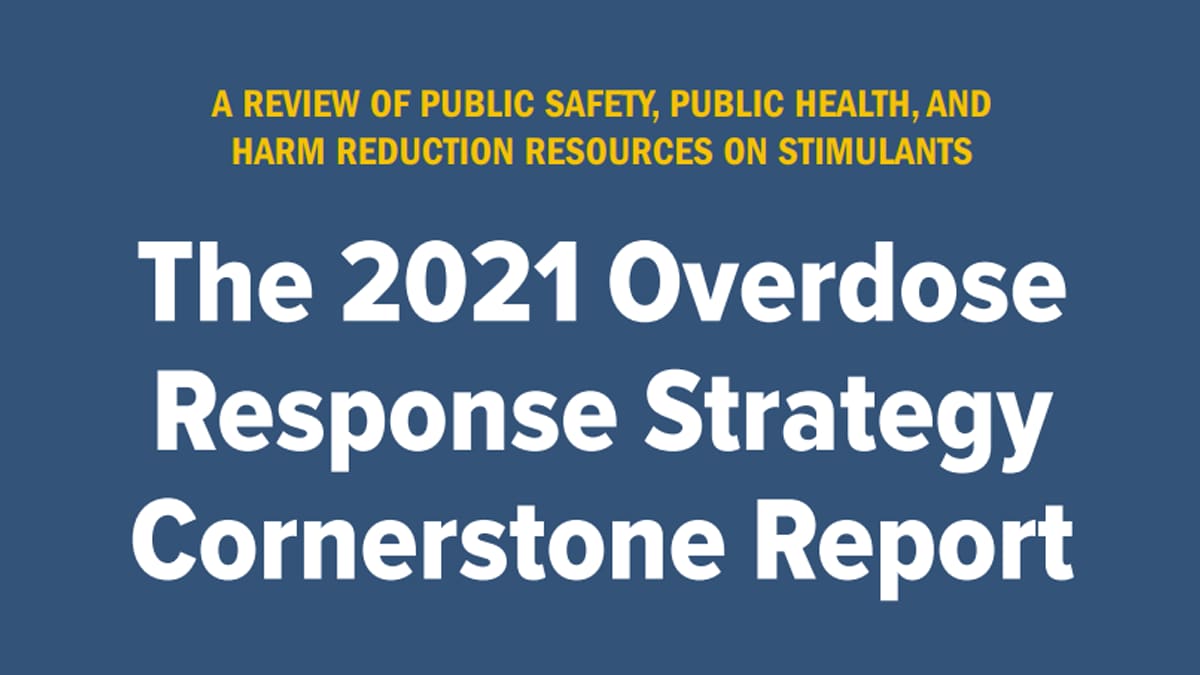
The Overdose Response Strategy (ORS) conducts an annual initiative-wide cornerstone project. These projects answer common questions or address shared informational needs that affect the ORS region as a whole. These projects focus on a different priority topic each year and build upon evidence-based practices to reduce overdose.
Public Health and Safety Teams Toolkit
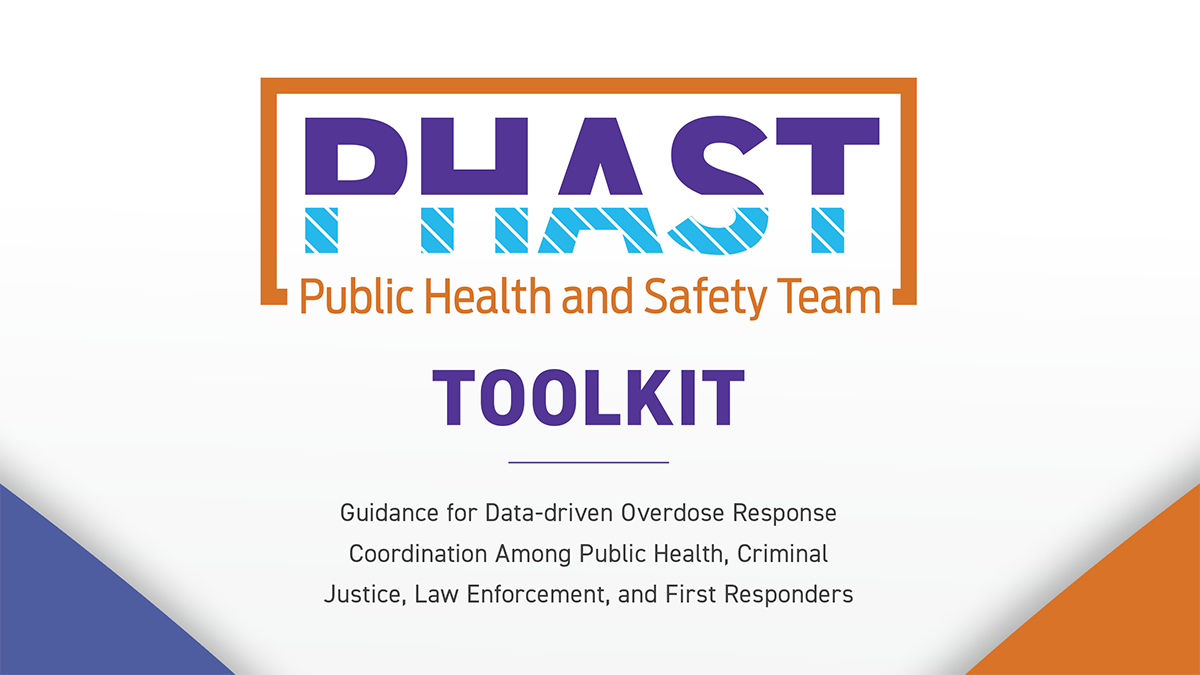
The Public Health and Safety Teams (PHAST) Toolkit [PDF – 123 pages] was developed by the CDC Foundation and CDC, with funding from Bloomberg Philanthropies, to assist city, county, or municipal public health and public safety agencies interested in working collaboratively to reduce overdose deaths. This toolkit is designed to be a printable resource that describes key activities for achieving the goals of PHAST. Additional resources and tools to support key activities and offer guidance for more in-depth processes are available at PHAST.org.
Medication-Assisted Treatment for Opioid Use Disorder in Jails and Prisons
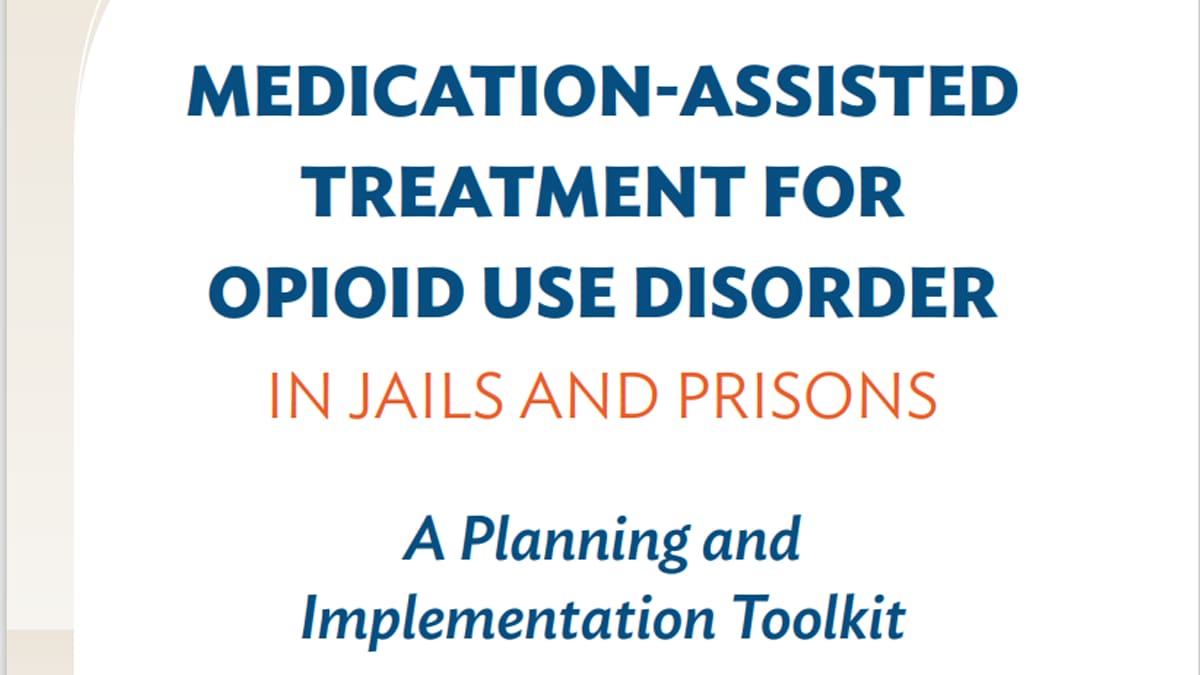
The Medication-Assisted Treatment (MAT) for Opioid Use Disorder in Jails and Prisons: A Planning and Implementation Toolkit includes real-world guidance, lessons learned, and concrete "how to" steps for implementing MAT in criminal justice settings. It was developed through a partnership between CDC, The National Council for Mental Wellbeing, Vital Strategies, and faculty from Johns Hopkins University.
Overdose Fatality Review
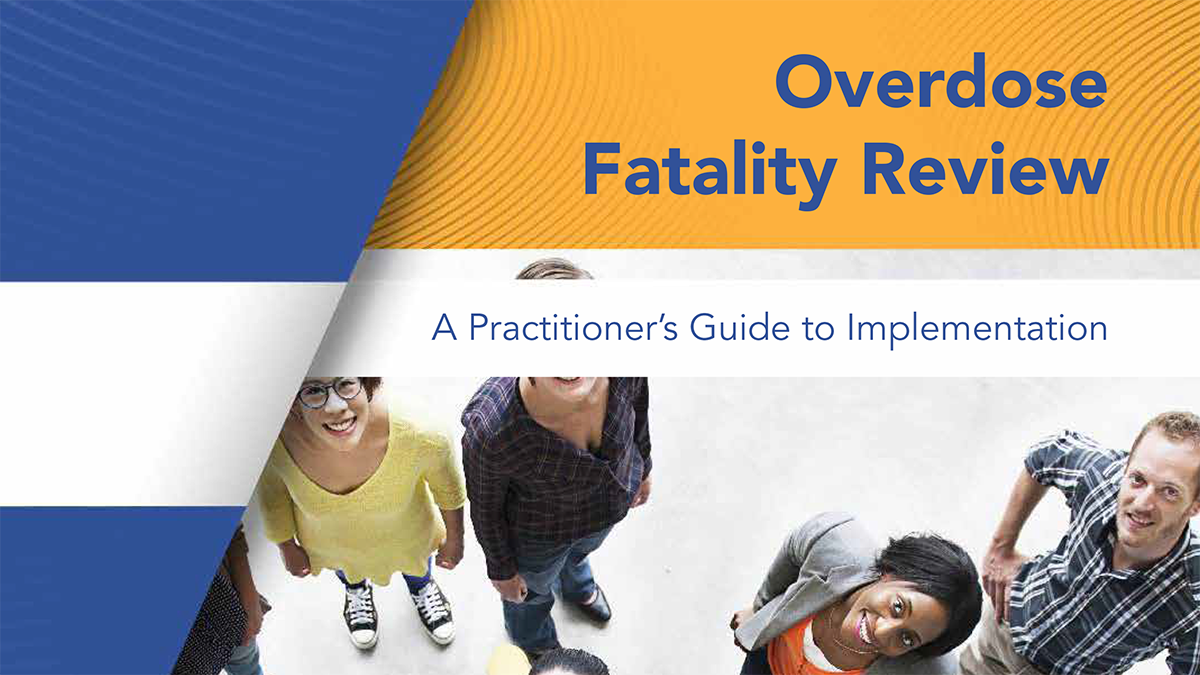
The Overdose Fatality Review (OFR) Practitioner's Guide for Implementation is a nationally recognized model being used by a growing number of communities to strengthen their community-based responses to the opioid overdose epidemic. This toolkit is a companion document to the Public Health and Safety Team (PHAST) Toolkit and helps communities plan, implement, and evaluate OFRs. It is designed for multiple audiences including public health, public safety, criminal justice, drug treatment, and social services.
Medications for Opioid Use Disorder in Corrections and Community Settings
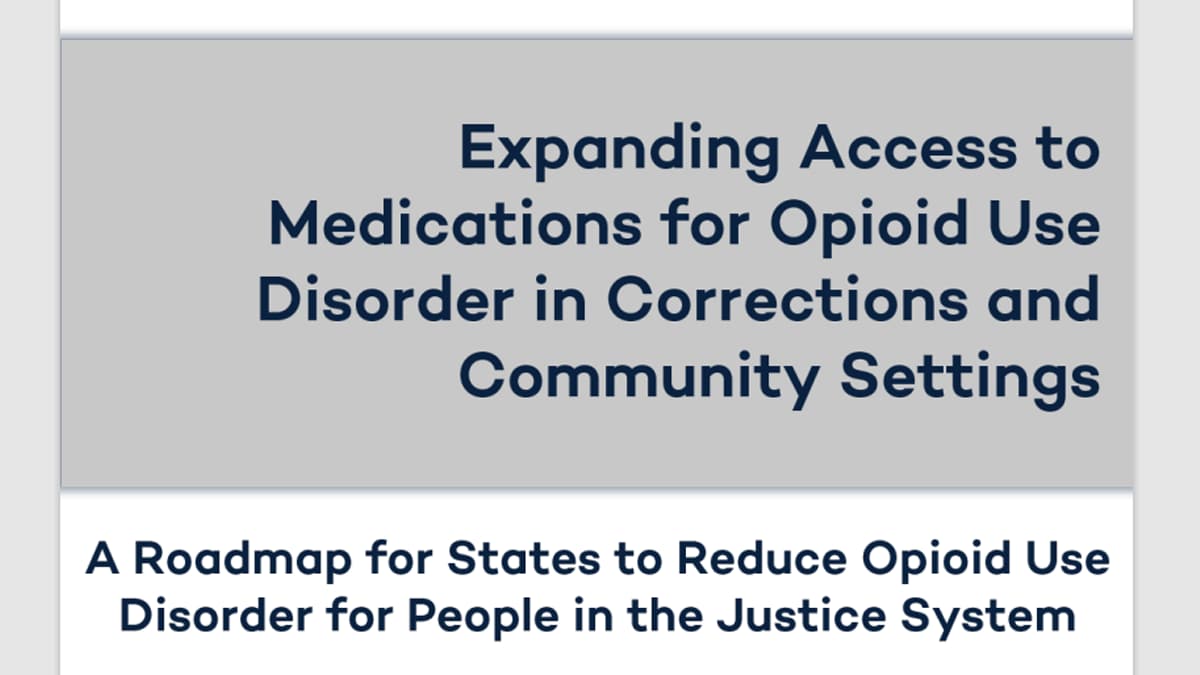
Expanding Access to Medications for Opioid Use Disorder in Corrections and Community Settings: A Roadmap for States to Reduce Opioid Use Disorder for People in the Justice System highlights existing state efforts and serves as a policy development tool for governors and other state officials. The resource helps leaders to bolster existing efforts to address opioid use disorder among people involved in the justice system by expanding access to evidence-based medications. The roadmap was created through a partnership between CDC and the National Governors Association (NGA).
Criminal Justice Resource Hub
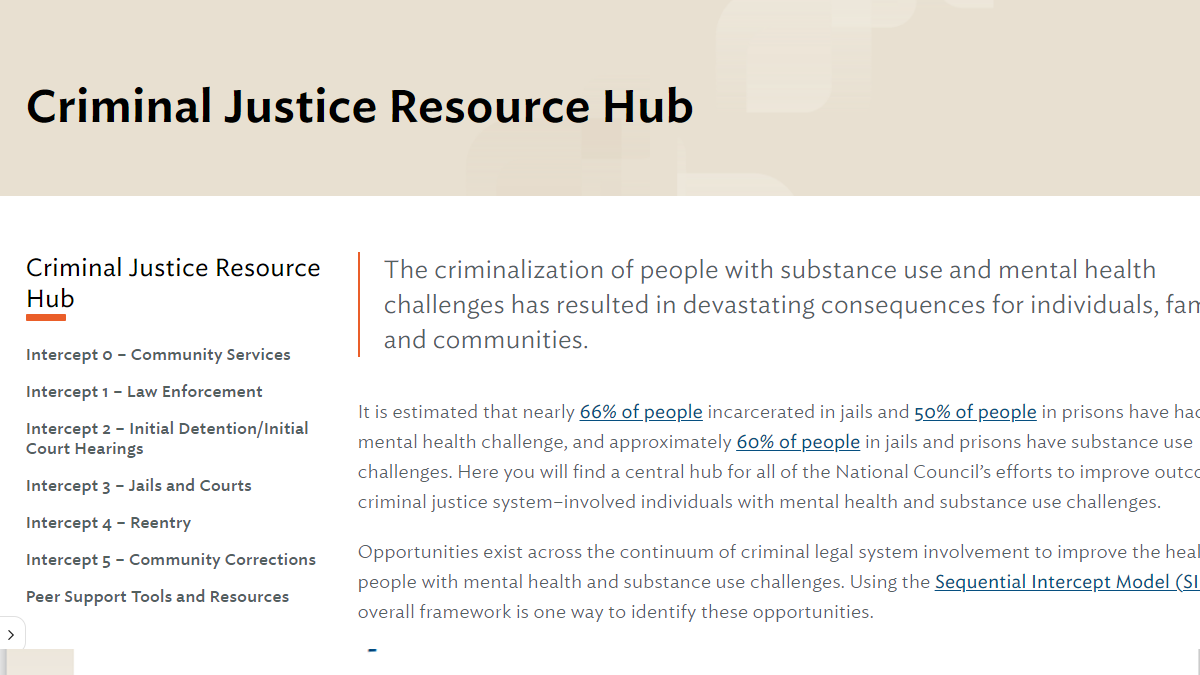
The Criminal Justice Resource Hub provides resources to increase the adoption of strategies to improve the care and outcomes for people with mental health and substance use challenges at risk of criminal legal system involvement.
Public Safety-Led Community-Oriented Overdose Prevention Efforts
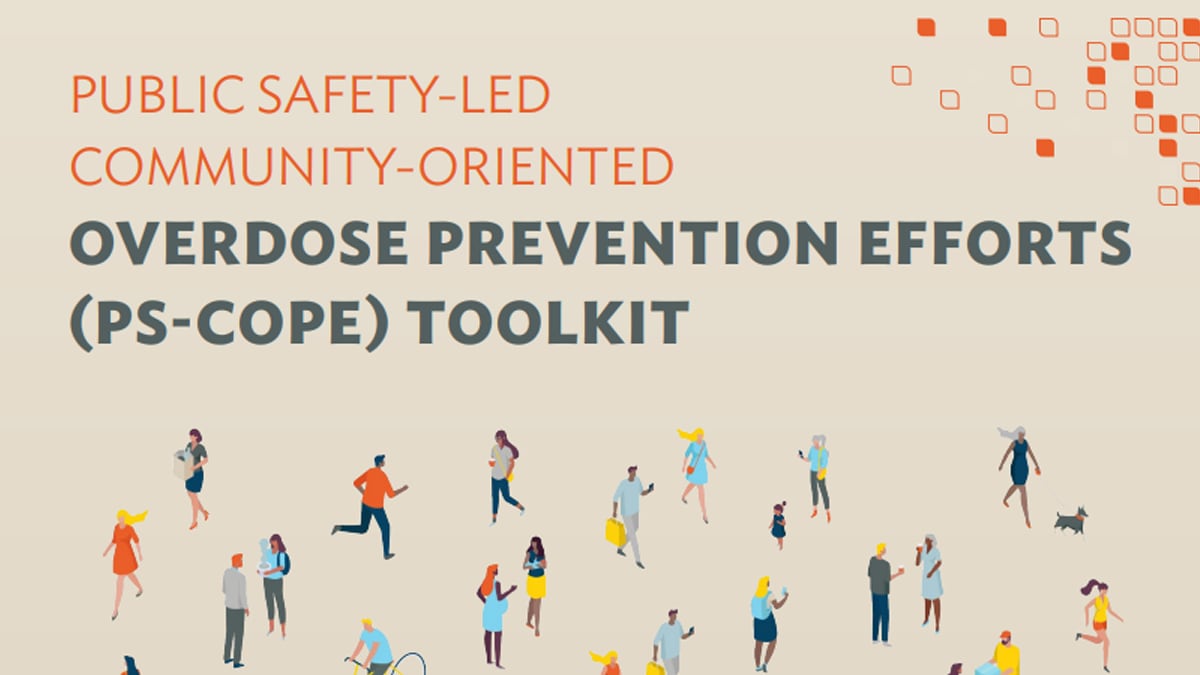
The Public-Safety-Led Community-Oriented Overdose Prevention Efforts (PS-COPE) Toolkit is a new approach to overdose prevention and response for Black, Indigenous, and people of color (BIPOC) communities. It combines three proven models to enhance overdose prevention and response: trauma-informed care, recovery-oriented systems of care, and procedural justice. Companion tools for Latino and Tribal communities are also available.
This toolkit is for public safety agency leaders and administrators who are looking to enhance existing overdose prevention and response efforts within BIPOC communities they serve. The toolkit was created through a partnership between CDC and the National Council for Mental Wellbeing.
